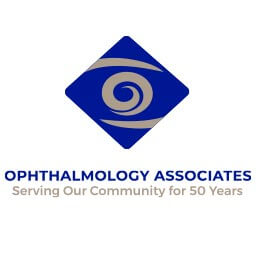Maximizing Your Health Savings Account: A Guide to Using HSA for Lasik Surgery
Posted by: Ophthalmology Associates of Fort Worth in Uncategorized

When it comes to healthcare expenses, financial planning is crucial, especially for procedures not typically covered by insurance.
This is where Health Savings Accounts (HSAs) come in. HSAs are a vital component of many health insurance plans. It’s a special type of account that allows you to save pre-tax dollars, which you can spend on medical expenses.
If you’re considering Lasik eye surgery, HSAs offer a unique opportunity for you to undergo this procedure.
Because traditional health insurance plans don’t cover elective procedures like Lasik, HSAs can lower your expenses through the tax benefits they provide.
You can plan and budget for your Lasik surgery with a good understanding and efficient use of your HSA. With this, you can turn your investment in your vision into a wise financial decision.
Understanding Health Savings Accounts (HSAs)
HSAs are a special type of savings account available in the United States, which are designed for individuals enrolled in a high-deductible health plan (HDHPs).
The main purpose of an HSA is to offset the high deductibles associated with HDHPs. Because you contribute pre-tax dollars to your HSA, you save money and can use those funds to pay for eligible expenses without incurring additional taxes.
It’s like having a personal savings account to be used specifically for healthcare costs.

Eligibility Criteria for Opening an HSA
To be eligible for an HSA, you must meet the following criteria:
- You must be enrolled in an HDHP
- You must not be covered in another person’s insurance plan
- You must not be claimed as a dependent on someone else’s tax return
- You must not be enrolled in Medicare
Tax Advantages of Contributing to an HSA
HSAs offer the following tax advantages:
- Tax-deductible contributions: Your contributions to your HSA can be deducted from your gross income.
- Tax-free growth: The money in your HSA grows tax-free, including any interest earned. This means any investment earnings you accrue are not taxed unless used for non-medical-related expenses.
- Tax-free withdrawals: Withdrawals from your HSA are tax-free if used for qualified medical expenses.
Aside from these, other advantages include:
- You can allocate your HSA funds to certain investments
- You can carry over unused funds from the previous year, increasing your funds for your medical expenses

The Benefits of Lasik Surgery
Lasik is one of the medical procedures that HSA can cover. It’s a popular laser vision correction procedure for problems like nearsightedness, farsightedness, and astigmatism.
Using a laser, the cornea is reshaped to improve vision and reduce dependency on glasses or contact lenses, which are traditionally used to correct vision problems.
However, compared to these traditional methods, opting for laser eye surgery procedures can give the following advantages:
- Gives long-term results with minimal maintenance.
- Eliminates discomfort and inconvenience from wearing corrective eyewear.
- It has minimal downtime because of the quick procedure
- Improves eyesight with minimal risk of complications
Interested in getting Lasik? Inquire now for a free evaluation and get on the road to 20-20 vision.
Cost Considerations and Financial Planning for Healthcare Expenses
While Lasik surgery can be costly at the onset, it can save you money in the long run. Because it solves your vision problems, you no longer have to spend on corrective eyewear which can accumulate over time regularly.
Additionally, using an HSA and its tax benefits can offset the cost of Lasik surgery.
You can save money through pre-tax contributions and tax-free withdrawals from your account. This exempts a portion of your expenses from taxes, giving you more savings.
Using an HSA for Lasik surgery is just one example of how financial planning can help you maximize your healthcare expenses.
By having a good understanding of the benefits and advantages of HSAs, you can make informed decisions on your expenses and savings, as well as explore alternative options as needed.
How Health Savings Accounts Work
Contributions to HSA accounts can come from your personal funds, your paycheck, or both.
However, the IRS limits contributions annually, depending on your coverage type and age. As of 2023, the maximum individual contribution is $3,850 and $7,750 for families.
As for withdrawals, you can use your HSA anytime for qualified medical expenses, tax-free. These include health-related expenses like dental services, vision care, and alternative therapies.
HSAs also offer more flexibility because they can also be used to pre-pay for expected medical expenses, deductibles and co-payments, and even over-the-counter medications.
Using Health Savings Accounts for Lasik
Vision correction procedures like Lasik surgery are recognized as an eligible expense under the IRS guidelines for HSAs.
This means that you can utilize your HSA funds to pay for this procedure. However, proper planning and budgeting are crucial to prevent any financial strain.
You should consider other costs like pre-operative and post-operative care and the actual surgery cost.
Can you use a health savings account for Lasik?
The quick answer is yes. When using your HSA, it’s necessary to document your Lasik surgery expenses. You’ll need to keep records that show that your HSA withdrawals were used to pay for Lasik.
This includes invoices, receipts, or a letter from your doctor indicating that Lasik surgery was necessary. These documents will help prevent any potential tax consequences in case of an IRS audit.
Interested in financing your Lasik surgery with an HSA? Contact us now for more information.
Planning and Budgeting for Lasik with Your HSA
It’s never too early nor too late to start planning and budgeting for laser vision correction using your HSA.
Creating a comprehensive financial plan can ensure you have enough money to pay for the procedure.
One way to do this is to maximize your contributions leading up to the surgery. You can do this by:
- Setting a budget and timeline to reach your contribution target before the procedure
- Saving larger catch-up contributions to boost your HSA balance
- Increasing payroll deductions
- Using non-traditional funding sources like bonuses or selling items
You’ll also need to budget for related costs such as pre-operative and post-operative care. By preparing for these expenses, you can avoid any surprises from unexpected financial burdens.
Using HSAs and combining them with proper planning, laser vision correction procedures like Lasik surgery can become a realistic option.
Remember to check your HSA contribution plan rules and limitations or consult a financial advisor to maximize your HSA strategy.

Potential Challenges and Solutions
While HSAs offer a great way to save for and pay for qualified medical expenses, there are potential challenges that you should be aware of:
- IRS will only consider Lasik as a qualified medical expense if it’s necessary to improve your vision problems which make daily life challenging.
- Having limited HSA funds or not being able to hit your contribution target before the procedure
- Unexpected additional costs or complications during the surgery
To address or prevent these issues, it’s important to have alternative financing options if Lasik is necessary. This can include using a flexible spending account (FSA) or taking advantage of payment plans offered by Lasik clinics.
Talking to your HSA administrator or insurance provider will also help you navigate your insurance policy and coverage. Some insurance policies may cover part of the procedure, while others won’t.
Understanding these details before your Lasik eye surgery can prevent any confusion or financial strain.
Real-Life Examples and Success Stories
Through HSAs, many individuals have been able to undergo laser eye surgery with Ophthalmology Associates. Their experiences can serve as your assurance that laser eye surgery is the best way to a clearer vision.
You can hear more from our patients on our testimonials page.
If an HSA isn’t available for you, Ophthalmology Associates offers several financing options for Lasik surgery through our partnership with CareCredit.
Ophthalmology Associates Is Here to Help!
An HSA is a great resource for financing eligible expenses, including Lasik surgery. It allows you to use tax-free funds and maximize contributions towards improving your vision health.
They also offer numerous benefits, including tax savings, lower out-of-pocket costs, and gives you more control over your healthcare expenses.
However, careful planning and wise budgeting are requisites to ensure that you have enough funds to cover the procedure and any associated costs.
Doing this, coupled with alternative financing options like FSAs or payment plans, many patients have successfully used their HSAs to pay for their Lasik procedure.
While saving for an FSA or HSA account may seem daunting, the long-term benefits of having improved eyesight are invaluable. It will change the way you see and experience your life.
At Ophthalmology Associates, our highly skilled and experienced doctors will guide you through the laser vision correction procedures and provide exceptional care during your surgery.
We understand that investing in vision health is no small task. That’s why we’re committed to helping you achieve a clear, comfortable vision so you can uplift your way of life.
Contact us today to schedule a consultation or learn more about Lasik with Ophthalmology Associates. Your journey to a better vision starts with us!
